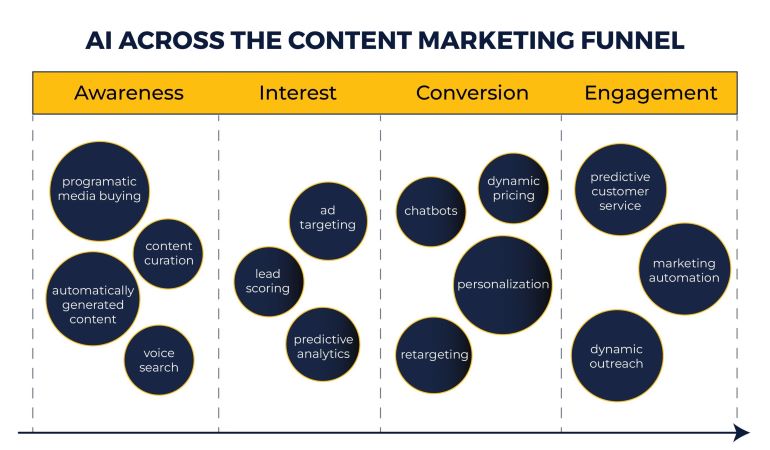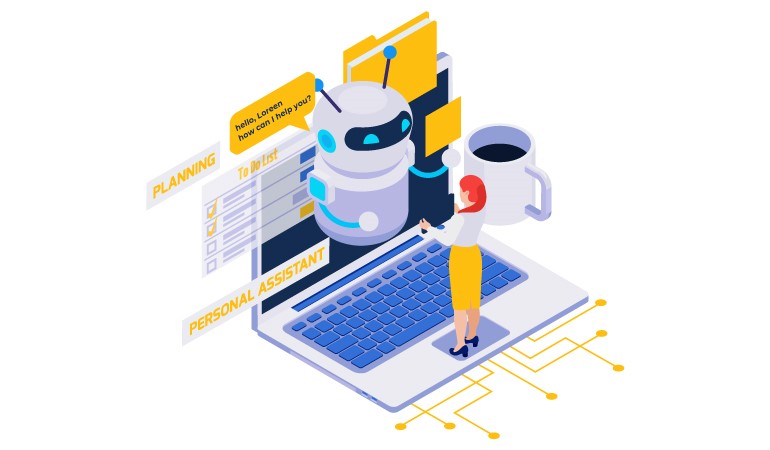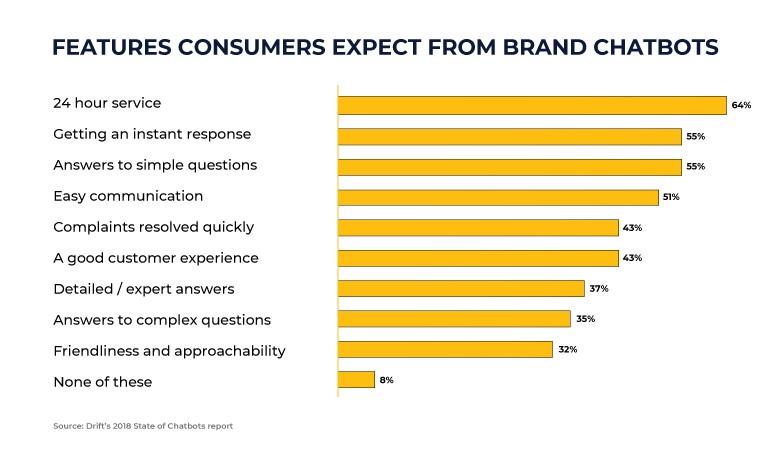Artificial intelligence (AI) is at work all around us, but few of us ever pay attention to it. Like most technological achievements over the last century, we take it for granted. If you’re a smartphone user, you have definitely used artificial intelligence. From simple autocorrect to finding the fastest route to a destination via maps, most smartphone features utilize AI and machine learning algorithms to do many tasks for us.
Content management is no different – it is rapidly evolving as AI transforms how content is created, managed, delivered, and stored. There is so much room where artificial intelligence can streamline and improve a company’s content management processes.
This article explains how AI is transforming content management, how you can leverage it for improved business outcomes, and what the future of content management in an age of AI & ML would look like.
But first, it’s better to get a word on the basics.
A Word on Artificial Intelligence
‘Machines that mimic human behavior’ is the most straightforward description of artificial intelligence. AI aims to do many things, including enabling computer vision, speech recognition, translation, text generation, etc. As such, AI has various capabilities, including the following:
- Machine learning & deep learning – it is a subbranch of AI that uses algorithms and data to mimic human learning behavior, thus enabling it to improve its accuracy over time. Deep learning is a further subset of machine learning, comprising a neural network of three or more layers. Such networks aim to imitate the workings of a human brain.
- Natural language processing – it refers to a machine’s ability to read and comprehend human language.
- Natural language generation – this is when a machine generates human language in the form of text or speech.
The roots of artificial intelligence go back to the 1950s when John McCarthy coined the term ‘artificial intelligence.’ Humans have built these incredible machines to make life easier. These machines are capable of doing tasks that humans lack the capability to do. Data analysis is one example – AI-powered software tools can analyze vast amounts of data to extract insights.
In a similar vein, content management has a lot to benefit from AI. It is an excellent technology for automating ordinary and repetitive content management tasks, allowing resources to focus on more important matters.
Let’s explore how content operations and management are being transformed due to the rise of AI.
How AI is Transforming Content Operations & Management
AI is most popular for its automation and data analytics functions. It can analyze huge amounts of data quickly and automate tasks that are otherwise time-consuming and repetitive. As a result, AI helps businesses improve their workforce efficiency, deliver enhanced customer experience via personalization, save time and money, and extract critical business insights through data analysis.
Let’s look at the ways Artificial intelligence is helping businesses streamline their content operations to achieve the goals we’ve just mentioned.
-
Content Analysis and Categorization
Another key functionality of AI is that it helps you perform sentiment analysis on a body of text to identify its overall tone. This allows a company to determine what the customer is feeling like when they send a query or a complaint to the customer support department. Alternatively, it can also help the business craft a more suitable response to the customer’s complaint or question.
Moreover, content analysis and categorization using AI also help ensure that a piece of content resonates with your target audience. If necessary, you can tweak the content accordingly.
IBM Watson is a very good example of an AI tool like NLP techniques that helps organizations automate processes, make future predictions, improve efficiency, and much more. It is also excellent for content management as it automates content categorization, sentiment analysis, text labeling, keyword extraction, etc.
-
Automated Image Tagging
Images play a critical role in making content engaging and relevant for audiences. However, image tagging is necessary if you want your content to be ranked in Google SERP. But herein lies a problem that AI has solved: it is a painstakingly slow process to tag images manually.
Artificial intelligence solves the dilemma of SEO executives by automating image recognition and tagging processes. Consequently, your content creators can focus on more strategic matters while leaving repetitive tasks like image tagging to AI.
-
Content Personalization
In the modern era, marketing is all about delivering personalized experiences to users and customers. But to enable the delivery of customized content, you first need access to individual customer data. Once you have that, you need to categorize it and put the customer under a certain type of classification, which could be based on demographics, geography, income levels, etc.
Artificial intelligence tools make this cumbersome process a lot easier and more manageable for you. An AI tool can automatically track and monitor a customer’s journey on your website, aggregate the data, and then analyze it for trends and patterns, eventually enabling you to deliver a personalized experience to your customers.
-
Assist in Content Creation
Have you heard of the latest AI sensation, ChatGPT?
ChatGPT, the brainchild of OpenAI, is making headlines worldwide. As a natural language processing tool, ChatGPT is a chatbot based on a family of large language models that renders human-like responses to prompts. It has passed an MBA exam with a B- to B grade at an Ivy League university, passed the bar exam, and has cleared many aptitude tests. It is capable of writing poetry, website code, articles, ad copy, emails, journal and news articles, and a lot more!
Naturally, ChatGPT has caused quite a stir in our digitized world, with content marketers worrying about their jobs. However, thought leaders are convinced that ChatGPT, or any other AI tool of such a nature, is not going to take away jobs – at least not in the near future.
On the contrary, marketers and other professionals use these tools to create engaging content quickly. Nevertheless, Google penalizes a website for using wholly AI-generated content. ChatGPT also has limitations—it can even provide factually incorrect data, biased data, or content lacking originality and nuances present in human content. Therefore, it requires human intervention to make the AI-generated content more original.
Whatever their limitations, machine learning and other emerging technologies will ensure that AI tools like ChatGPT and Bard (Google’s version of ChatGPT) continue to evolve and improve.
A day might come when you will only feed the tool the parameters of the content you want, and it will deliver exactly what you asked for.

The Future of Marketing, Content Management & Artificial Intelligence
So far, we have discussed how AI is transforming the content management landscape. Let’s now discuss what the future holds for us.
We are, as many scholars and thought leaders believe, undergoing the Fourth Industrial Revolution, marked by a blurring of lines between the digital, physical, and biological realms of life. AI is playing a crucial role in all this.
We can expect the following content management and marketing trends to emerge in the future, thanks to AI.
-
Communication between AI Tools
Are you familiar with the Internet of Things (IoT)? It is a network of interconnected devices that you can control via the internet. So, if you ask Siri or Alexa, your AI-enabled smartphone assistants, to turn on the air conditioner in your bedroom, you’ve just made your AI tool interact with another AI-powered device.
In the future, we will see AI platforms and tools interacting with each other much more frequently to deliver services to users. Content management systems will turn to AI to automate processes and communicate with other AI tools to offer enhanced functionality and improved features to end users. As a result, both marketers and consumers will benefit from such an integration.
-
Immediate SEO Improvements
Real-time analytics is one of the most promising fields of AI. One can expect the dawn of a future where AI tools will offer and make real-time improvements and adjustments to a company’s SEO strategy.
This will save marketers a lot of precious time, allowing them to generate high-quality and optimized content in a fraction of the time it takes to do the same job today. Moreover, improved search rankings will inevitably lead to a competitive edge for the business.
-
Gap Analysis for Content Creation
Gap analysis for your content is essential but often overlooked when you’re busy churning out content for your audiences. You can easily miss gaps in your content (or your competitor’s) and thus lose an opportunity to optimize it further.
However, many marketing and AI thought leaders believe that AI tools will be able to perform this crucial task for marketers in the coming years. AI-powered content management and marketing platforms will flag such gaps and give appropriate recommendations for overcoming them. All this would lead to improved content generation and higher website traffic.

-
Customer Support Automation
It is true that customer support automation is already well underway these days. Chatbots are fast replacing or supplementing customer support departments across businesses and industries. However, at the moment, many of the bots are trained to route complex customer queries to human agents for resolution.
This is bound to change in the coming years as chatbots take center stage in the customer support process. These bots will be trained to handle complex customer queries effectively and efficiently, thus significantly reducing, if not eliminating, the human element in the customer service department. This will also greatly reduce your business costs.

Conclusion
The world of marketing and content management is set to transform forever, thanks to the rise of emerging technologies like AI, machine learning, computer vision, IoT, etc.
While challenges will always be there, we are confident that machines and the humans who build them will find newer, more innovative ways to overcome obstacles.
Content management and operations will be closely tied to the use of top AI tools in the coming years. Companies that fail to make the transition and refuse to adopt the latest tools will suffer decimation at the hands of their competitors. Artificial intelligence is here to change nearly every aspect of our lives, and content management is just one of those things that will see significant change and improvement in the years to come.
Are you looking to integrate an AI tool with your content management system? Contact us at [email protected] to learn how Xavor, a leading technology company based in California, can help you improve your content management through innovative AI tools.












